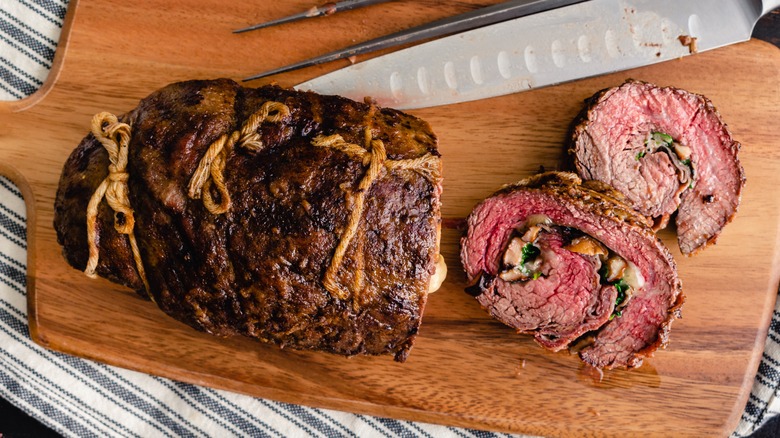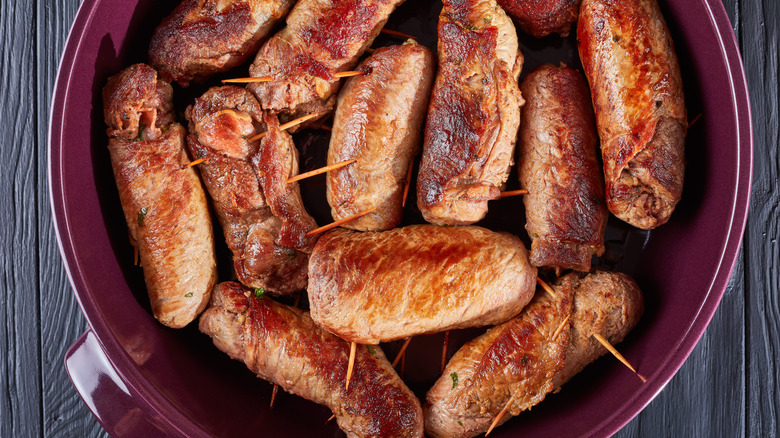The Huge Mistake You're Making With Stuffed Steak (And How To Avoid It)
While steak can be delicious all on its own, sometimes its fun to gild the lily with a cheesy or meaty stuffing. Some of our favorite stuffed steak recipes include German rouladen filled with bacon, mustard, and pickles; pinwheel skirt steak loaded with parsley and cheese; and braciole stuffed with salami and hard-boiled eggs (perfect for using up those Easter leftovers). All of these dishes, however, can fall apart into a sloppy mess if you don't take one simple precaution: As chef Daniel Ontiveros of Las Vegas' Carversteak advises, you've got to tie up your meat with twine.
The way Ontiveros sees it, the biggest mistake you can make when stuffing a steak is not to use butcher's twine to hold everything together. As he explains, "You must tie your steak to keep the stuffing from falling out." Butcher's twine is pretty useful stuff to have on hand anyway since it also allows you to bind pot roasts and truss roast chickens.
What can you substitute for butcher's twine
POV: You've just spread your skirt steak with a cheesy filling. You could swear you had a roll of butcher's twine in the junk drawer, but it's nowhere to be found. You need to have dinner on the table in under an hour, so there's no time to run to the store and buy more. What are you going to do? Don't panic. You have several options available.
The most twine-like of these would be dental floss. You might be thinking "yuck," but we're talking about the unused stuff, and if it's safe to go in your mouth, why not on your food? (Don't use the mint-flavored kind, though.) You could also use wooden toothpicks or skewers as meat "nails" to keep the steak together, although you'll need to soak them in water first so they don't burn. Finally, you can roll sheets of aluminum foil into thick ropes to wrap around your steak. While they can't be cinched too tight, they'll provide enough structure for a stuffed steak and won't burn even at high temperatures.
There are a few things you should not use as butcher's twine substitutes, however: Rubber bands will melt and ruin your meat, while sewing or embroidery thread is too thin and might catch fire. Paracord, while sturdy and heat resistant up to about 470 degrees Fahrenheit, is made of nylon and might give off unpleasant odors or flavors as it cooks.

